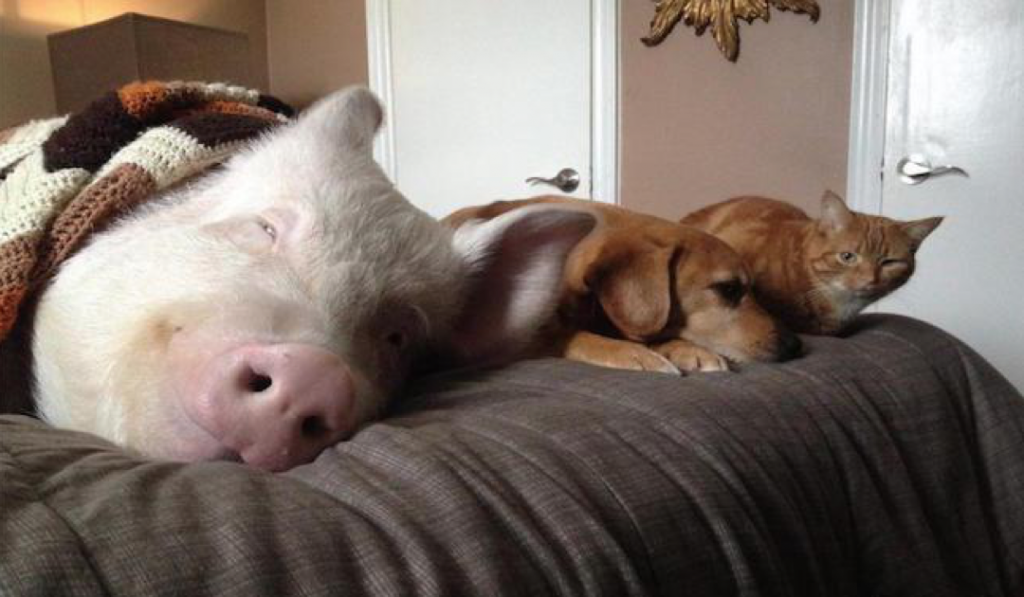Many of us consider pets as part of our families. We love them, and treat them like such. So, it is hard to imagine that a pet could be hurt without any consequences.
A recent story in the news proved the contrary. Molly was a three-year-old Vietnamese potbelly pig who was rescued by the British Columbia SPCA, and nursed back to health.
She was cared for by the SPCA staff just like any other dog and cat, while she patiently waited for her forever home. One couple came to adopt her, and the SPCA handed her into their care in the hopes that they would treat her with love and affection.
Unfortunately, Molly’s fate was to be killed and eaten by her new family only a month after her adoption. This story caused a lot of sadness and outrage by pet owners and basically anyone who cares about animals. But how come nothing could be done?
Sadly enough, even though pets occupy a special place in our hearts, they are still considered property under the law, and so killing them and eating them after adopting them as pets is not a crime in Canada.
What about animal cruelty laws, you wonder? Well, the Criminal Code (ss. 445.1 (1)) protects animals against “unnecessary pain, suffering or injury”. Unfortunately, as it turns out, killing and eating your own pet is not considered “unnecessary suffering” and therefore not a crime.
Executive Director of Animal Protection for not-for profit organization Animal Justice argues that, “Canada’s laws, written in the 1950s, are now out of step” with our values since most people care about animals not being unnecessarily hurt or killed.
In addition, the provincial statute, Prevention of Cruelty To Animals Act (of British Columbia) does not provide any additional protection to animals. Section 9.1 of the Act only protects animals against distress. So, if Molly, or any dog or cat at home, was killed without being caused any unnecessary distress, the result would be the same.
However, what if this incident was to happen in Ontario? What about the ?
Well, similarly to British Columbia, section 11. 2 of the Ontario Society for the Prevention of Cruelty to Animals Act only prohibits causing an animal distress or training an animal to fight with another animal. Now, what is very interesting is that any farmed animals, and animals used for experimentation, are categorically excluded from any protection under this Act.
What is worse is that there is no provision that protects pets who go through the adoption system from unnecessary actions such as those that Molly’s owners took against her.
We are still a long way from achieving comprehensive protection for different types of animals such as pets, wildlife and farmed animals. However, what is unfortunate is that no real protection is accorded to vulnerable beings such as pets who cannot speak or argue for their own well-being.
I hope this story sparks some interest in readers with regards to animal welfare and the active role that we, as law students, can take in the shaping of the law, including where we head in terms of animal protection.

